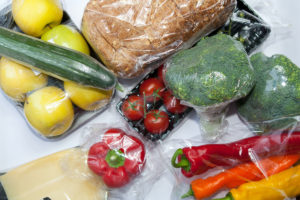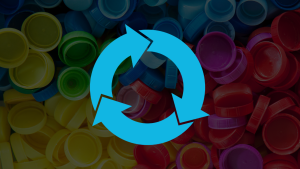Canada recycles just 9 per cent of its plastics
Canada recycles just 9 per cent of its plastics. A new ‘circular economy’ could change that — and create jobs, report says
Full Article:
Author: Moira Welsh, The Toronto Star
Canada recycles just 9 per cent of its plastics with the rest dumped in landfill and incinerators or tossed away as litter, a new report shows.
After 30 years of recycling programs that force residents to collect, wash and fill blue boxes with plastic bottles, bags and containers, it turns out that in 2016 more than 3.2 million metric tonnes ended up as garbage, according to the summary of a report produced by Deloitte for Environment and Climate Change Canada.
Of that amount, 86 per cent went to landfill, 4 per cent to incinerators and 1 per cent — 29,000 metric tonnes — ended up as litter which can contaminate lakes and oceans. Most of the wasted plastic comes from offices, institutions or industries.
The total amount of plastics consumed in Canada in 2016 was 4.6 million metric tonnes, said the report, called Economic Study of the Canadian Plastic Industry, Markets and Waste. The majority of plastic waste comes from packaging, for products such as computers or children’s toys, with lesser amounts from automotive parts, electronics, textiles and construction.
In an interview, federal environment minister Catherine McKenna said Canadians should “stay tuned” for her June announcement on a zero-plastic waste strategy.
“We do not do a good job on recycling,” McKenna said. “So, it’s all hands on deck.”
The Canadian Plastics Industry Association opposes a ban on plastic items, but McKenna said, “We are not ruling anything out.
“We’re looking at all the tools in our tool box,” she said. “Certainly, banning is one of them, but there are many other things that you need to do, from putting responsibility on producers … to focusing on innovation … to better waste management.”
Usman Valiante, an environmental policy analyst, said McKenna and the provincial environment ministers must now change the way Canadians consume and manage plastics.
“This is an icon issue for how wasteful we are in our economy,” said Valiante, who is scheduled to speak before the federal committee on the environment and sustainability in May.
“Our existing recycling policies have failed and Canada needs a new industrial policy on plastic.”
Valiante, along with environmental leaders like Jo-Anne St. Godard, of the Recycling Council of Ontario, has called for government policy changes that they believe will transform the middling recycling industry into a multibillion economy, potentially creating tens of thousands of jobs.
Regulatory changes would help drive what is known as a “circular economy.” That means plastic producers would be responsible for the recycling and reuse of materials displacing new plastics, made by the petrochemical industry, which is part of the oil and gas sector.
The previous Ontario government passed legislation — with all party-support — that focused on producer responsibility, meaning the companies that manufacture or sell materials must recycle them, leading to innovation and better environmental designs.
The current Progressive Conservative government released a “discussion paper” on litter and waste last month, noting the shift to producer responsibility and the need to increase plastic recycling in the industrial, commercial and institutional sectors, where recycling rates are notoriously low. According to the Ontario report, the province’s Blue Box Program captured 28 per cent of all plastic packaging generated in 2017.
“The remaining plastic packaging goes to landfills or becomes litter,” the report said. “We can and should be doing better.”
Deloitte’s report says a strong recycling industry — with a 90-per-cent recycling rate — could lower greenhouse gas emissions and boost the economy, creating an additional 17,000 direct jobs (skilled workers in, for example, plastics recycling plants) and another 25,000 indirect jobs (such as workers who make the machinery used for recycling). Without major changes, plastic waste sent to landfill would represent a lost value of $11.1 billion by 2030, the report said.
Government changes could shift the industry. Some, for example, are calling for fees or bans on plastic grocery bags, which can place a value on bags so they aren’t tossed as litter.
Valiante is calling for government rules that would require a percentage of recycled plastics be included in all plastic products.
St. Godard said the federal government could harness the heft of its massive purchasing power to do business with companies that reduce single-use plastics, diminishing the demand for oil, a non-renewable resource.
“Extracting oil out of the ground is as we all know, becoming more difficult, more controversial,” said St. Godard. “It has its own environmental implications, economic implications and we all know the political implications.”



